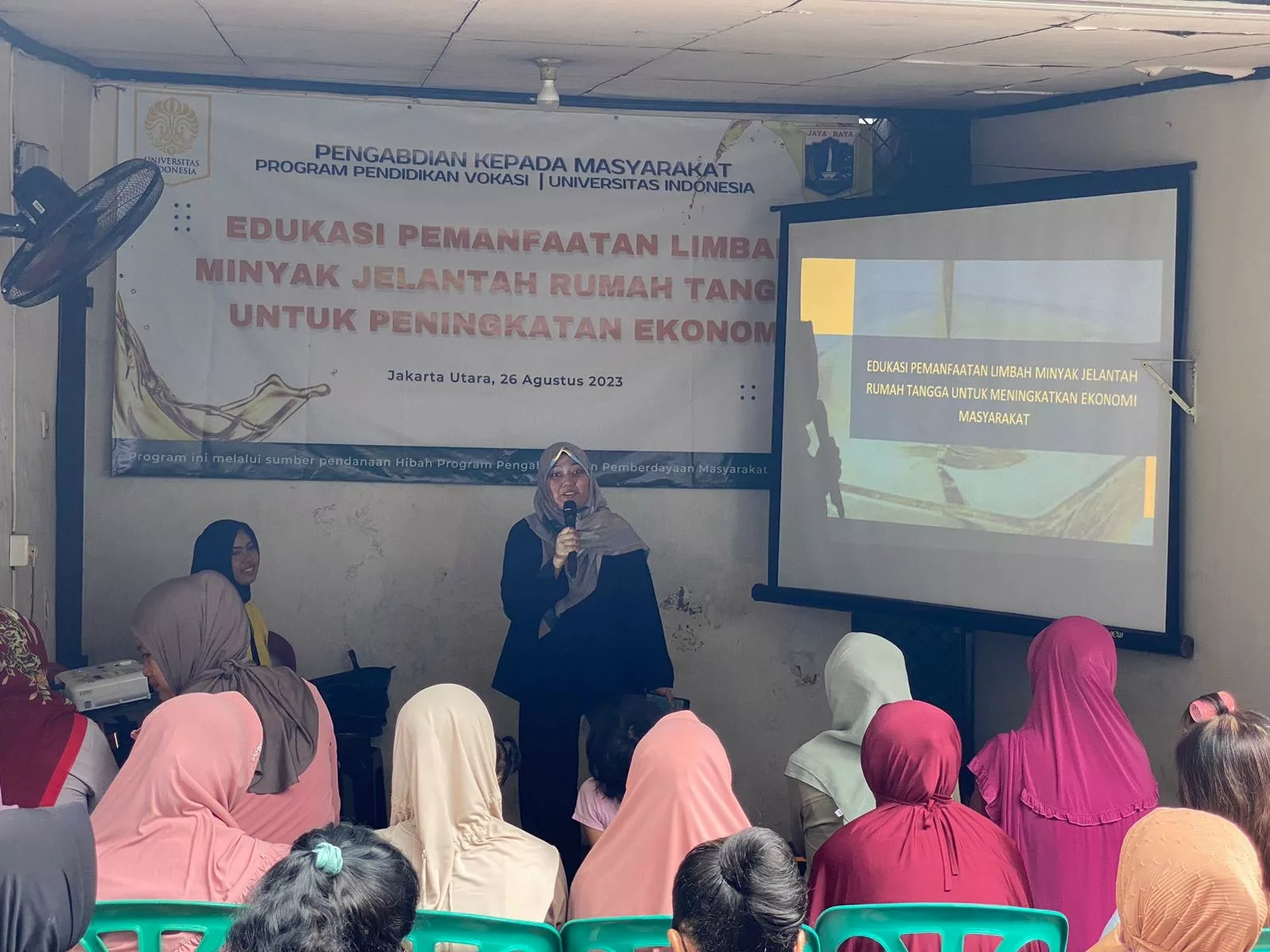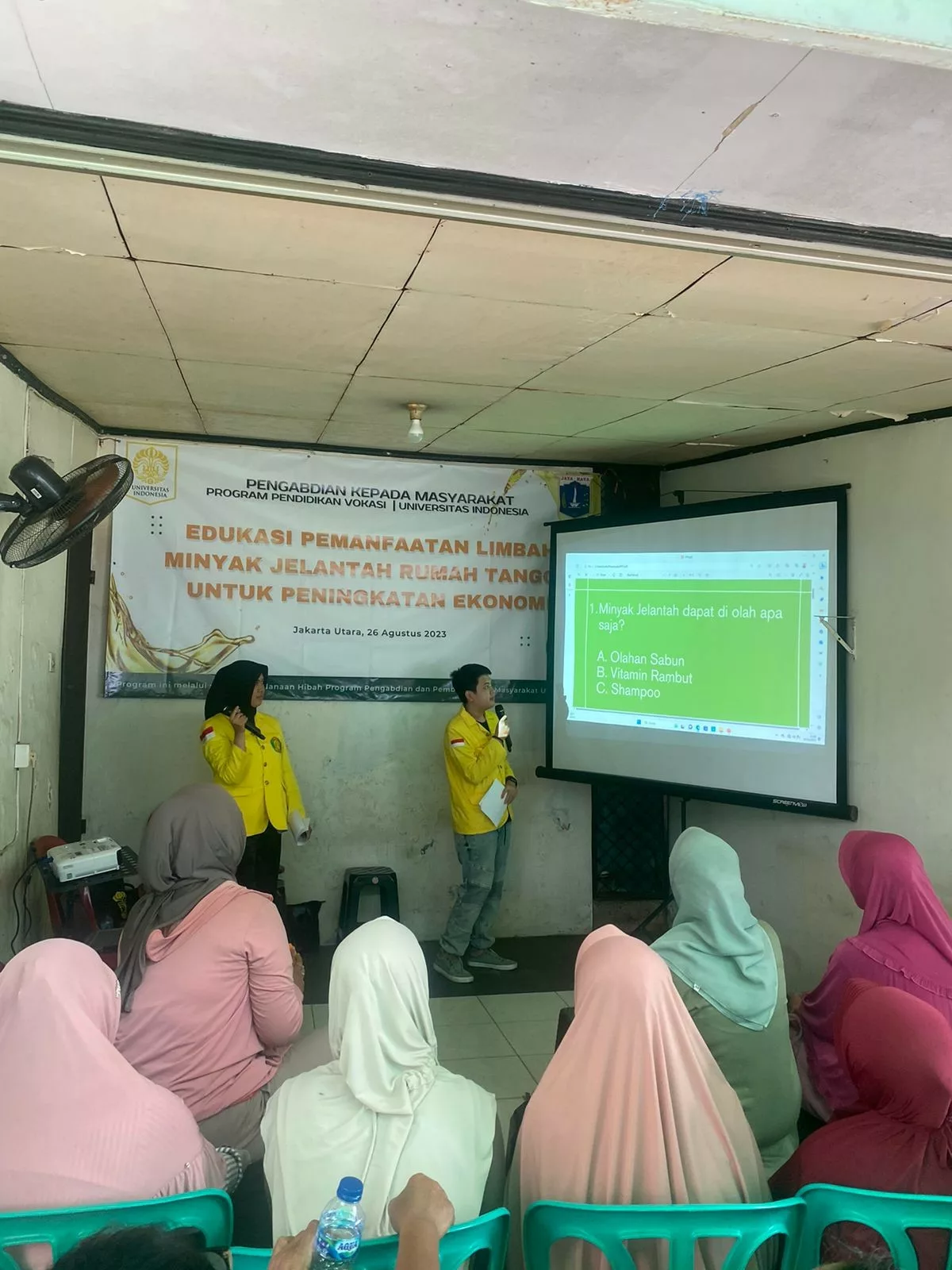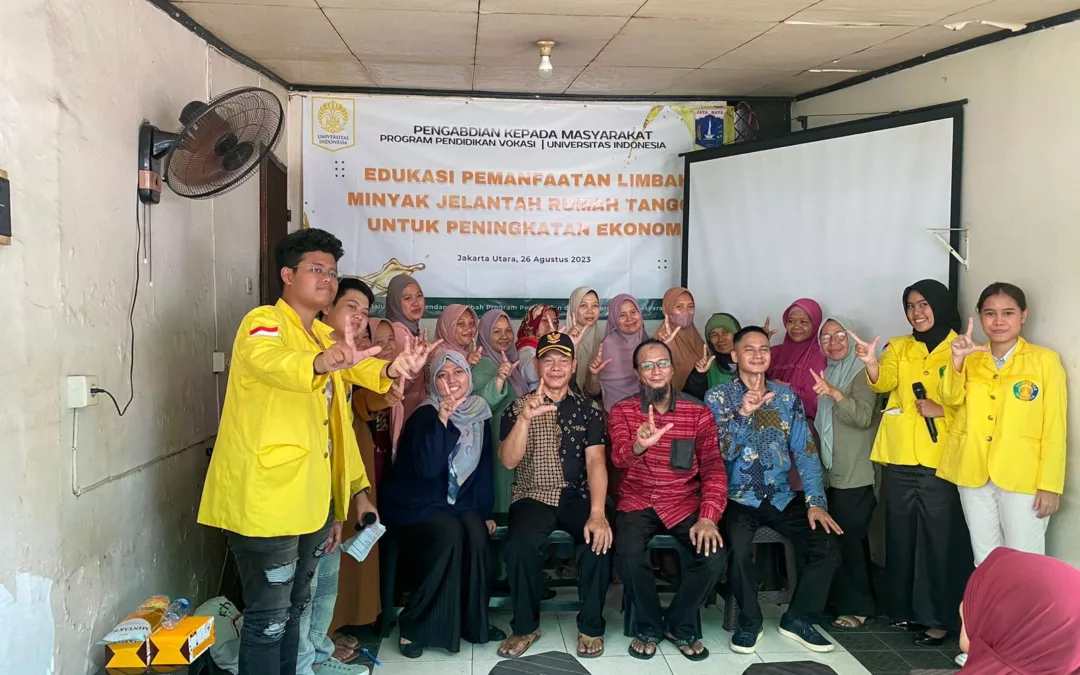Depok-Data published by the international non-governmental organization Fern, which focuses on the forestry sector within the European Union, reveals that Indonesia occupies the number one position in the world as the largest consumer and producer of palm oil. The high consumption of cooking oil has resulted in an increase in used cooking oil, namely waste oil derived from the remaining use of corn oil, vegetable oil, ghee, and so on. There are still many people who are not aware of the dangers caused by environmental pollution if used cooking oil is thrown away carelessly.
The preliminary study by the National Team for the Acceleration of Poverty Reduction in 2020 noted that in 2019, the national consumption of palm cooking oil reached 16.2 million kilo liters (KL). Of these figures, the average used cooking oil produced is in the range of 40-60 percent or in the range of 6.46 – 9.72 million KL.
Used cooking oil waste, which is included in the B3 waste category (Hazardous and Toxic Materials), can cause water and soil pollution, thereby triggering damage to the ecosystem. Used cooking oil that is disposed of carelessly poses a risk of increasing levels of Chemical Oxygen Demand (COD) and Biological Oxygen Demand (BOD) in waters. This causes the surface of the water to be covered with a layer of oil. As a result, sunlight cannot enter the waters which encourages the death of biota in the waters.
One way to reduce the disposal of used cooking oil which can pollute the environment and disrupt the ecosystem is to process it again. If utilized properly, used cooking oil has a fairly high market value because it can be used to produce valuable products such as plant fertilizers, soap, fuel for oil lamps, cosmetics, household lubricants, and animal food.
 (Photo: Yulial when presenting material on the use of waste cooking oil)
(Photo: Yulial when presenting material on the use of waste cooking oil)
The Vocational Education Program, Universitas Indonesia (UI) carried out community service to encourage residents in Sunter Agung Village, North Jakarta to be wiser in managing used cooking oil. The activity which took place on August 26, 2023 was entitled “Education on the Use of Waste Used Cooking Oil in Improving the Community’s Economy” and discussed the utilization of used cooking oil which can be reused into various products.
The service team is chaired by a lecturer from the UI Insurance and Actuarial Administration study program, Yulial Hikmah, S.Si., M.Si., and consists of Dr. Fia Fridayanti Adam, M.Si.; Radityo Kusumo Santoso, S.I.A., M.M.; and five students. According to Yulial Hikmah, “This community service activity aims to increase awareness of housewives (regarding) the importance of using used cooking oil waste effectively and help them convert used cooking oil waste into profit for the community’s economy. We hope that this activity can solve the main problem of needs household properly and properly.”
Support for these community service activities was also provided by the Director of the UI Vocational Education Program, Padang Wicaksono, S.E., Ph.D. He said, “The community service activities carried out by UI Vocational lecturers and students are expected to have a big impact on housewives to manage used cooking oil to improve the household economy.” The community service activity was attended by more than thirty participants consisting of housewives who had problems related to used cooking oil waste. By participating in these activities, housewives are provided with the knowledge to increase family income through the use of used cooking oil.
 (Photo: Question and answer session during a presentation regarding the use of used cooking oil)
(Photo: Question and answer session during a presentation regarding the use of used cooking oil)
From an economic point of view, the use of used cooking oil can generate quite high income. It is because the costs used are not too high but the results can be goods that have selling value. Through the use of technology, they can also market goods resulting from the use of used cooking oil through social media. Tini (54), one of the community service participants, expressed her gratitude for the community service activities held by UI Vocational.
“This activity is very impressive because it helps us as housewives to overcome the problem of used cooking oil. Apart from that, we become more concerned about the environment, especially around us,” said Tini.

